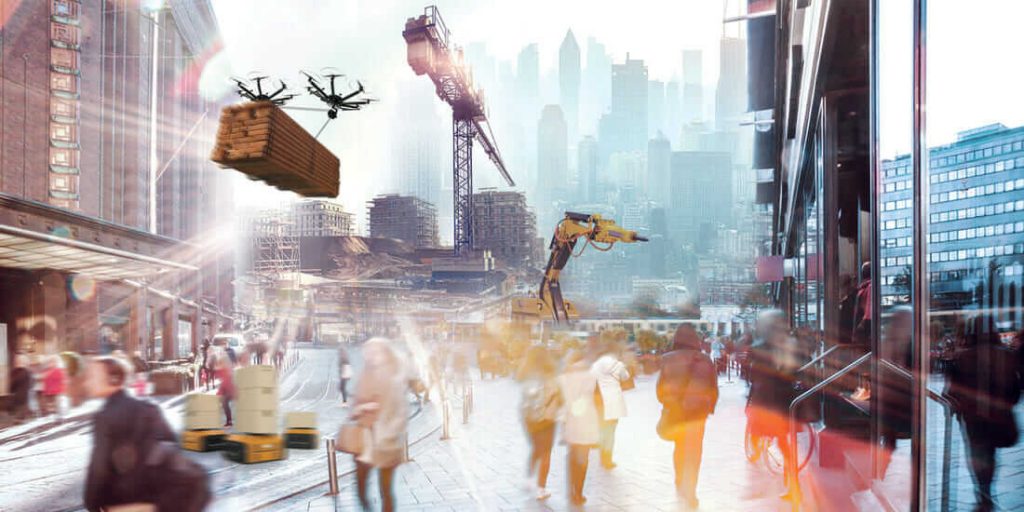Most obvious predictions are pointing to a reprioritisation of jobs and employment in the short term, perhaps in the mid-long term, and definitely across the whole world.
The economy that we are all used has been flipped, some countries were blindsided and others knew the crisis was coming but failed to act quickly enough. A forced timeout is what we’ve experienced and with so many businesses closing, the heart ache and distress all around was always close to the surface.
Some will suggest that the future workforce forecast is already set, circumstances will move beyond your control, and that you will need to go with what you are given.
But what if you could create a vision for your association or organisation, business idea and startup, small business and scaleup, industry sector or workforce? And make that an appealing vision to take action towards, with practical steps to get to your preferred future scenario, and to do it with others not alone?
So what might we be dealing with and where are the jobs? There are four main categories to think about the jobs across the economy right here, right now:
- Essential
- Enabling
- Experience
- Entrepreneurs
Industry sectors are growing and contracting, opportunities are being uncovered and sometimes the unexpected is coming to the forefront.
With a forced a slowdown of the economy, it is our “essential workers” who are keeping Australia and many other countries going, including sectors such as:
- Health and Medical - Aged care, child care, corrections, disability, health professionals, GPs, mental health, paramedics, pharmacy
- Agriculture, food production and meal preparation, groceries, hardware, petrol, supermarkets
- Banks, clothing (PJs, trackies, slippers – bought mostly online J), commercial cleaners, education (online), energy, government services, trades, water
- Defence forces, drivers, infrastructure, logistics, manufacturing (medical supplies), mining & resources, stores, supply chain, transport, warehouse & delivery
- Public safety, security and law enforcement
And there is a flow on to a variety of jobs where industry sectors and organisations are scaling up particularly where there is bulk recruitment. This second cohort relates to the enabling sectors and which jobs include:
- Building, construction and infrastructure projects
- Call centres
- Entertainment, games, apps, employment services
- Marketing and social media
- Tech
- Telecommunications
Not that Australia is following the USA in terms of the trajectory of this crisis, but there are similarities between developed countries economies with the top 20 jobs available in the USA, as outlined in the table below:

It is interesting to see which jobs have become more important over the past few months and where many jobs have been lost. Most acute job losses are across the experience economy such as bars, clubs, entertainment, hotels, pubs, restaurants, sport and recreation, theme parks, tourism and travel, wineries and cellar doors. Where possible, businesses have pivoted into food supply, meal delivery and take away but there are many that simply can’t operate until restrictions open up. These sectors are important in any economy, particularly in Australia, and with domestic or international travel uncertain for a while, holidaying at home, enjoying your own backyard plus uncovering new experiences will be a focus.
Whilst entrepreneurship can mean owning a business or startup, intrepreneurship (where you are an entrepreneur for your employer) and/or social innovator (balancing profit and purpose), and entrepreneurial mindset is needed across every industry sector, in all countries and for every job role. This is the capability set that is common globally where we’ll will see many jobs created and scaled up in terms of employment.
Applying an entrepreneurial approach to how the economy and jobs are considerred, alongside examples of workforces being redeployed in similar or related areas, shows just how transferable many skills are. And instead of only looking at what qualifications you have, or specific industry experience, as well as what you enjoy doing, then is becomes much easier to see how capabilities and skills relate to multiple job roles, especially in the same “E”.
If you are exploring a workforce project or plan, and would like to work through a systematised, proven approach, then please reach out via wendy@workforceblueprint.com.au to make a time to talk through what you are aiming to do, thanks.
